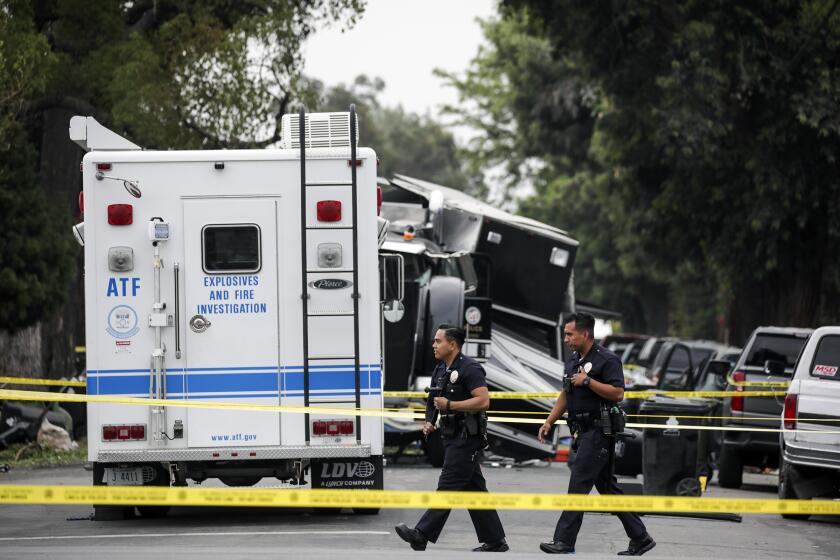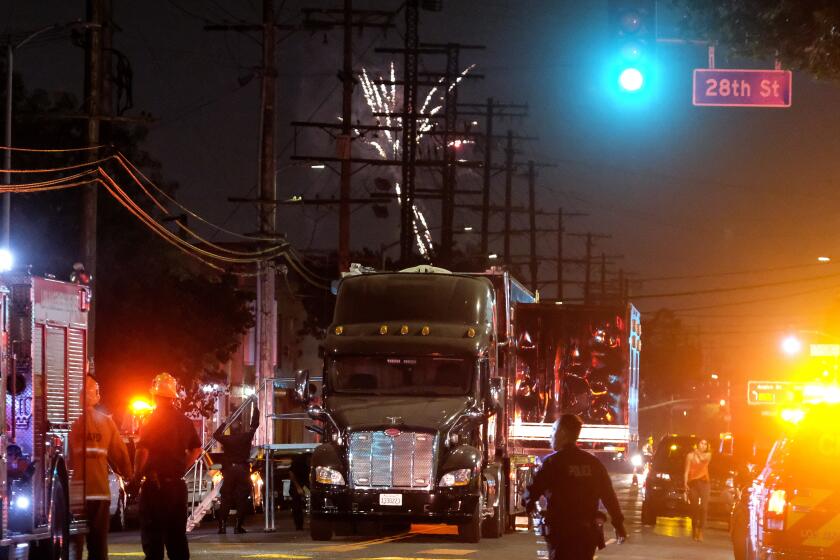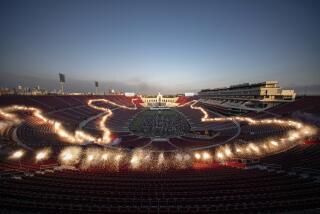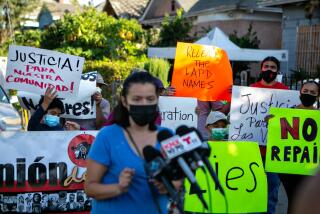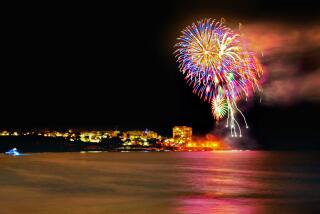Man arrested in South L.A. fireworks explosion is set to plead guilty, feds say
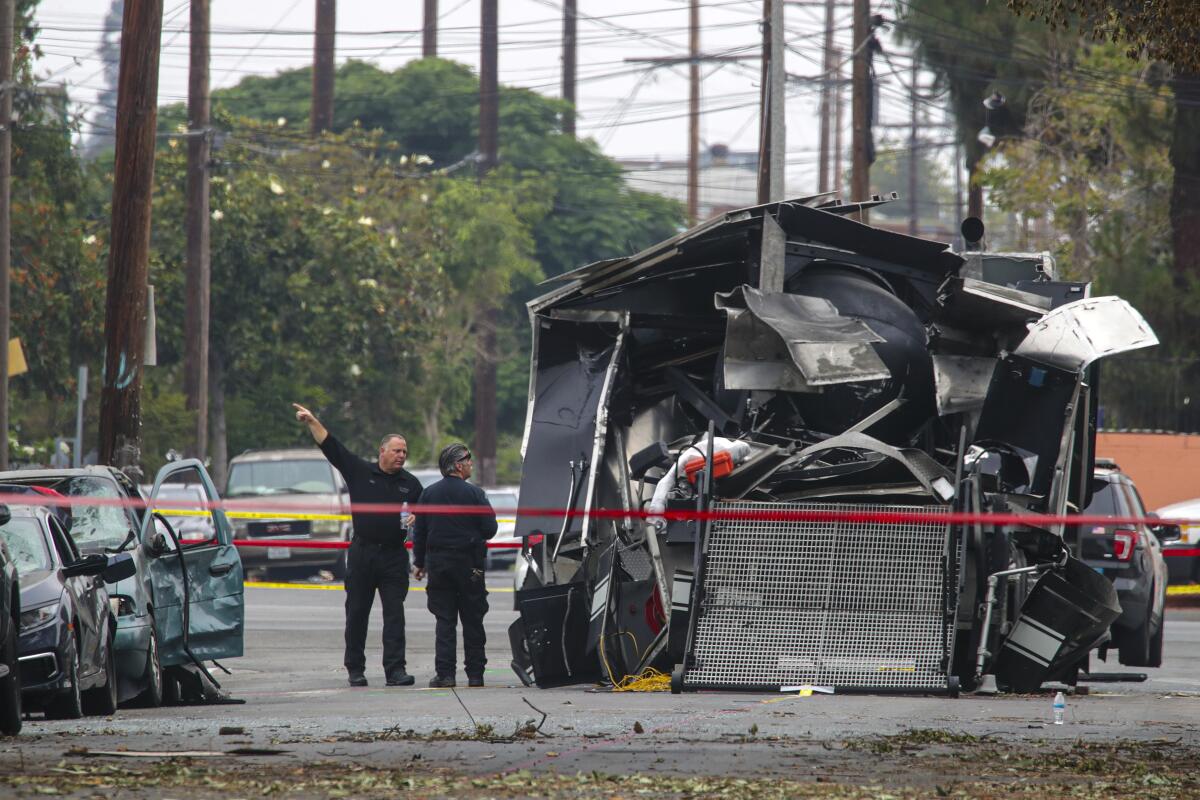
The man whose fireworks the LAPD blew up two months ago in a massive South L.A. explosion that injured 17 people is expected to plead guilty Monday to unlicensed transport of explosives from Nevada to California, authorities say.
Arturo Ceja III, 26, was storing about 16 tons of fireworks in the backyard of his family’s house on East 27th Street near San Pedro Street when Los Angeles police discovered the arsenal June 30 after getting a tip about suspected illegal sales, according to the Bureau of Alcohol, Tobacco, Firearms and Explosives.
An LAPD bomb squad deemed some of the fireworks unsafe for transport, so officers detonated some of them in an armored black containment vehicle. But they underestimated the fireworks’ weight and potency and set off an explosion that destroyed 22 residential properties, 13 businesses and 37 vehicles, including the containment truck, according to police.
Ceja told ATF he had bought the fireworks at a dealership called Area 51 in Pahrump, Nev., and had taken them to L.A. in rented vans and trucks over six or seven trips, according to the government. Federal authorities charged Ceja on July 2 with one count of unlicensed transport of explosives.
Ceja is scheduled to withdraw his “not guilty” plea at a hearing Monday afternoon before U.S. District Judge Fernando M. Olguin, court records show. Thom Mrozek, a spokesman for the U.S. attorney’s office, said Ceja was expected to plead guilty. If he does so, he could face up to 10 years in prison.
Ceja’s lawyer, Matthew J. Lombard, did not respond to requests for comment.
How did the LAPD manage to blow up a South L.A. block while seizing fireworks?
The LAPD has come under intense criticism for the blast from residents and elected officials. Critics are demanding to know exactly how the department managed to cause the explosion while transporting the fireworks. Residents of the neighborhood have said police should have done more to protect the community before the fireworks were detonated.
The police supervisor and bomb technicians who were involved in the botched explosion have been removed from the field, according to LAPD Chief Michel Moore. ATF is continuing to investigate the incident, and the FBI is reviewing the LAPD’s systems and protocols.
More than a month after the explosion shattered windows and blew the doors off buildings along the block, the city was still sheltering more than 80 displaced residents in a hotel.
Federal authorities said they suspected Ceja was selling illegal fireworks but charged him only with unlicensed transportation. Ceja told the ATF he paid cash for all the fireworks that he bought at Area 51, including some he bought from a man who was selling them from the trunk of his Honda in the parking lot of the dealership, authorities said.
Explosion damages homes and injures 17 people as a bomb squad tries to safely detonate homemade fireworks seized from a home.
Police found more than 500 boxes of commercial and homemade fireworks in Ceja’s backyard, including some stored unsafely next to cooking grills, they said. Authorities said they initially estimated that Ceja had 5,000 pounds of fireworks at the house, but the ATF ultimately determined it was about 32,000 pounds.
Fireworks purchased at dealerships in Nevada are often sold illegally in California at much higher prices. The California Department of Forestry and Fire Protection seized 80,000 pounds of illegal fireworks on the Nevada-California border in May and June, an ATF agent said in court papers. The fireworks buyers often pay in cash and travel on secondary roads to dodge enforcement, according to ATF.
More to Read
Sign up for Essential California
The most important California stories and recommendations in your inbox every morning.
You may occasionally receive promotional content from the Los Angeles Times.
